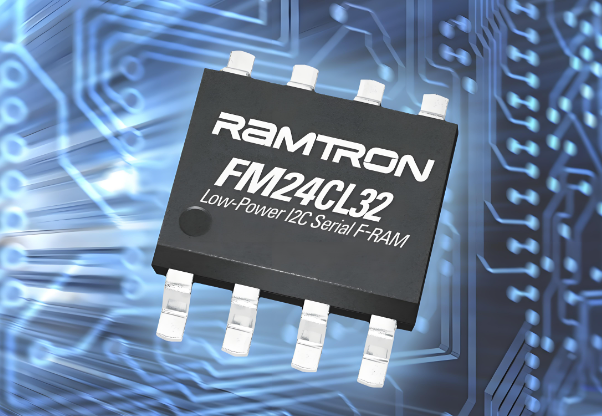Ramtron International Corporation, a pioneer in non-volatile memory (NVM) technology, was acquired by Cypress Semiconductor in 2012, integrating its expertise into Cypress’s broader portfolio of semiconductor solutions. Ramtron was renowned for developing ferroelectric random-access memory (FRAM), a unique type of non-volatile memory that combined the speed of SRAM, the density of DRAM, and the non-volatility of flash memory, addressing critical gaps in traditional memory technologies.
FRAM, Ramtron’s flagship innovation, leverages ferroelectric materials to store data, enabling it to retain information without power while offering exceptional performance:
-
Non-Volatility: Unlike SRAM or DRAM, FRAM does not require constant power to preserve data, eliminating the need for backup batteries in applications like industrial sensors or smart meters.
-
High Speed and Endurance: FRAM supports read/write cycles at speeds comparable to SRAM (nanosecond range) and boasts an endurance of up to 10^15 cycles—far exceeding flash memory’s typical 10^5 to 10^6 cycles—making it ideal for frequent data logging.
-
Low Power Consumption: FRAM consumes minimal energy during operations, with lower write power than flash, extending battery life in portable devices such as medical monitors and IoT sensors.
Ramtron’s FRAM products, now part of Cypress (and subsequently Infineon, following Cypress’s acquisition by Infineon in 2020), cater to diverse industries:
-
Stand-Alone FRAM Chips: These include serial (I2C, SPI) and parallel interface devices, available in densities from 4Kb to 4Mb. They are used in automotive systems (e.g., airbag controllers, dashboard logs), industrial automation (data recorders, PLCs), and consumer electronics (smart cards, wearables).
-
Embedded FRAM Solutions: Integrated into microcontrollers (MCUs) and system-on-chips (SoCs), FRAM enhances functionality in applications requiring frequent data updates, such as energy meters, medical devices, and IoT edge nodes.
-
Specialized Form Factors: Ramtron developed FRAM in compact packages (e.g., DFN, SOIC) to suit space-constrained designs, critical for miniaturized electronics like hearing aids and portable sensors.
Ramtron’s FRAM technology addressed long-standing limitations in memory systems:
-
Reliability: FRAM’s resistance to radiation and extreme temperatures (-40°C to 125°C) made it suitable for aerospace, defense, and automotive under-the-hood applications.
-
Cost Efficiency: Over time, FRAM reduced total system costs by eliminating the need for separate backup power sources and reducing maintenance in long-lifespan devices.
-
Compliance: FRAM-based solutions met strict industry standards, including AEC-Q100 for automotive electronics and ISO 13485 for medical devices.
Post-acquisition, Cypress expanded Ramtron’s FRAM portfolio, integrating it with other memory and connectivity technologies. Today, as part of Infineon, FRAM continues to evolve, supporting emerging trends like edge computing, smart infrastructure, and low-power IoT. The technology remains a benchmark for high-performance, non-volatile memory in demanding environments.
Ramtron, Cypress, non-volatile memory, FRAM, ferroelectric RAM, high-endurance memory, low-power memory, automotive memory, industrial memory, IoT sensors, Infineon FRAM, embedded memory solutions.
